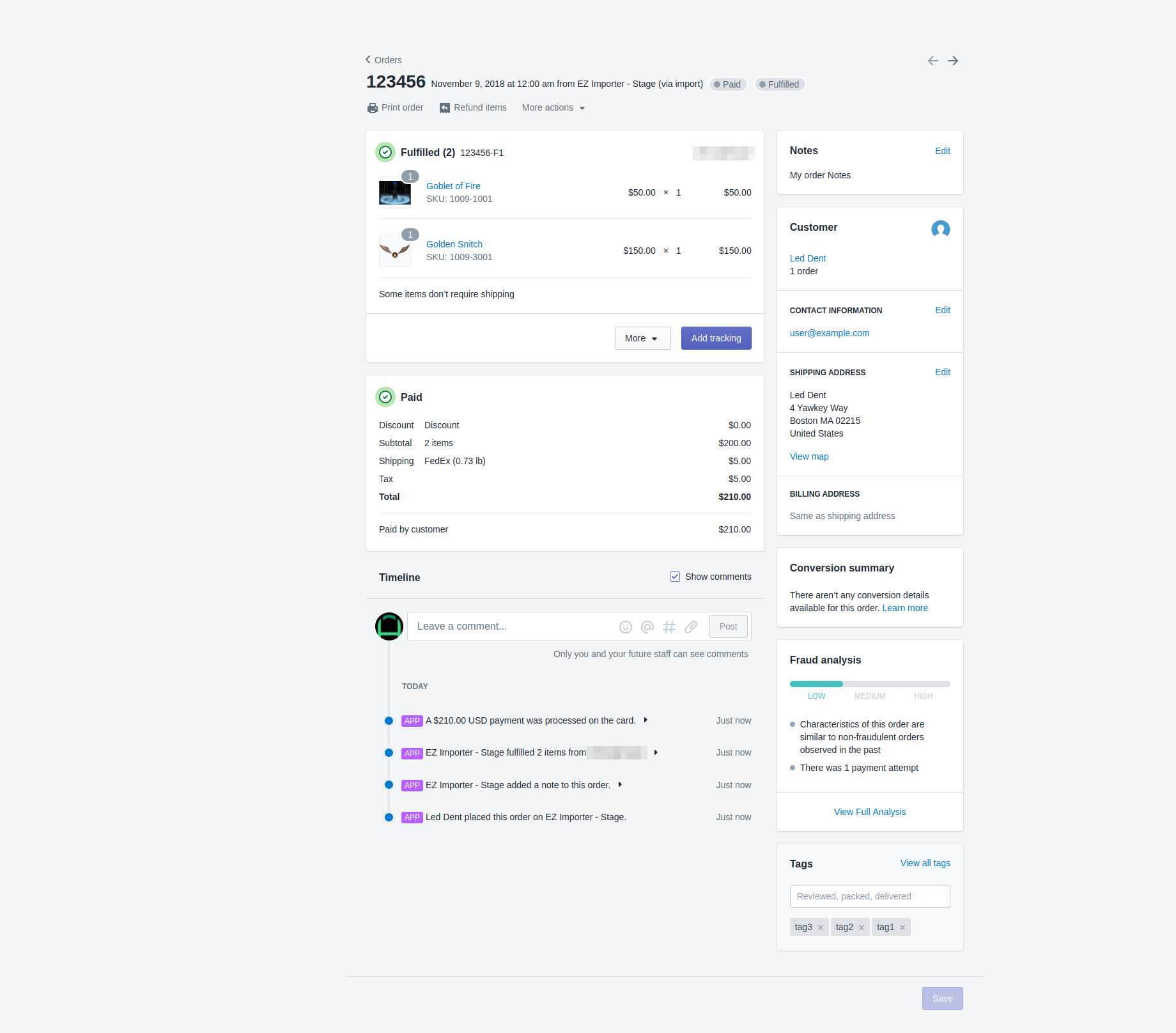Migrating from 3dcart to Shopify
To start migrating or importing orders from 3dcart, you'll first need to export your orders from 3dcart. You can use 3dcarts data migration tools to export your orders to CSV. To read their documentation on how to export your orders click here.
Selecting a Default Template
Now that you have your CSV ready to import, you'll want to create a data mapping using our data mapping template system. 3dcart has a standard CSV file, so we've created a default data mapping so you don't have manually map each column.
To select the 3dcart default data mapping click the Data Mappings Template on the left navigation bar in EZ Importer. From here you'll see a list of our default data mapping templates. Click the blue Use Template button to the right of the 3dcart Mapping.
This will create a new data mapping and redirect you to the edit data mapping page where you should review your data mapping to ensure the data you want imported is mapped correctly. For more information on why you need to edit the mapping before using it, click here.
Reviewing Your 3dcart Data Mapping
The 3dcart Data Mapping Template is a starter template. Starter templates are meant to help you start your data mapping and need to be reviewed before you use them. 3dcart has a consistent export file but there are a few things you should review before doing your import.
The 3dcart Data Mapping Template is about 90% built for you, the majority of fields in the CSV file are mapped to the appropriate Shopify fields. Because you are migrating data from a separate system, there will never be an exact match and you'll need to verify or edit the mapping. The main field that's missing from the 3dcart export is the fulfillment status.
Mapping Your Fulfillment Status
3dcart does not have a fulfillment status column in the exported CSV file. Shopify expects the fulfillment status field to be marked as fulfilled, partial or unfulfilled. In order to get this field to populate correctly, you'll have to update your CSV file. To do this, you need to add a new field and map it to the line_items.fulfillment_status field on the Line Items tab. We have populated the fulfilment_status field on the Line Items tab with a column header called itemfulfillmentstatus. However, we have not activated the field, so you'll need to click the checkbox to the left of the fulfilment_status field on the Line Items tab.
Now that you've activated the fulfillment_status field, you'll need to add the new column to your CSV file. The column has to be named itemfulfillmentstatus so it matches the Header name mapped to the fulfillment_status. Once you've added the new column, populate your order data. You'll want to add the value fulfilled to all line items that have been fulfilled, unfulfilled to all line items that have been unfulfilled and if you have any line items that have been partially fulfilled you'll want to add the value partial.
Importing Your Orders
Now that you have your data mapping created, you can import your orders with a few clicks. First click the Import Orders button. This will bring up the Import dialog. From here, create a name for your import, select the data mapping you just created and the file you're going to import.

Once you've selected everything you need, you're ready to review your first import. Before running your full import we recommend you run a few TESTS to ensure everything looks the way you expect. Click here to read our test documentation.
Click the Review Import button and you'll be redirected to the Review Import page. Remember, if you have a very large file it may take a few minutes to upload. Once you've been redirected to the Review Import page, you can look at the file to ensure everything looks the way you want. Now you're ready to run your import. For more information about the Review Import page click here.
What's Being Imported
When building the 3dcart Data Mapping Template we've mapped everything we could from the 3dcart CSV file. This includes the following.
- Line Item information
- Order date
- Taxes
- Discount Codes (Line Item discounts coming soon!)
- Shipping Information
- Transactions
- Link By Product SKU (if your product SKU is setup in your store the line items will link to your products)
- Link to customer
You orders will now show up in your reports, analytics and be linked to your customer. This should give you everything you need on the Order when importing from another Shopify store.
If you have any other questions about how to import your 3dcart CSV file feel free to let us know.
App: EZ Importer
Tags: shopify, ez importer, csv, migrations, 3dcart



